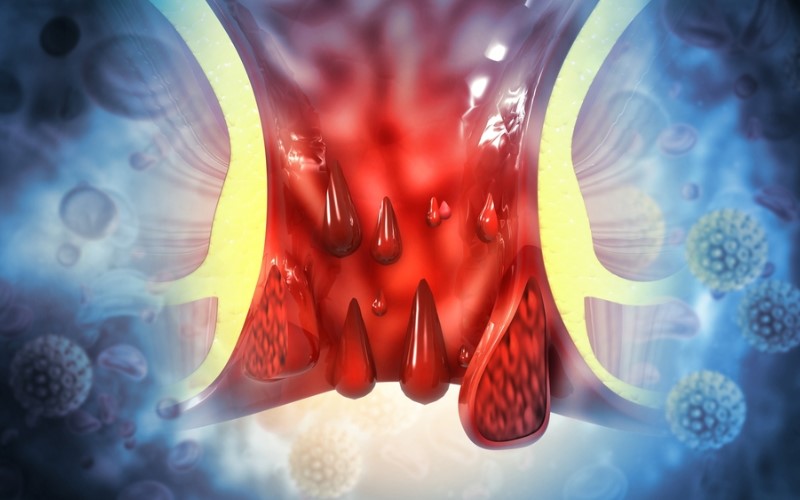
Blood in stools is a more common occurrence than it is a topic of discussion. While it can be scary to spot blood in your stool or while wiping, the last thing you should do is panic. Most such cases are caused by minor issues that sometimes go away on their own. However, it could be an indication of a serious problem. Hence, you must know what is common about it and when blood in stool requires medical attention.
Below is a detailed account of blood in stool causes, blood in stool diagnosis, and blood in stool treatment.
What Is Hematochezia?
Hematochezia is the medical term for lower GI tract bleeding. The blood may come from the upper gastrointestinal tract, including the esophagus, stomach, and small intestine, or from the lower gastrointestinal tract, including the large intestine and rectum. Bleeding from the upper gastrointestinal tract is called melena, while hematochezia is more precisely associated with bleeding from the lower gastrointestinal tract. However, both conditions involve almost similar processes of blood in stool diagnosis.
Rectal bleedings could be continuous, frequent, or occasional, depending on the causative factor. In some cases, the blood can be spotted easily by the naked eye, while in others, the amount of blood is very small and often goes unnoticed. When the blood in stool is frequent and in large amounts, bring it to immediate medical attention by the Best Gastroenterologist in Delhi.
Blood In Stool Causes
Hematochezia could be caused by a common factor that could resolve on its own, and sometimes, some serious issue could manifest it. Some of the causes of blood in stool are listed below:
- Anal Fissure: The bleeding could be due to a fissure or a small tear or cut in the tissues lining the anus. The tear could be compared to a paper cut and could bleed while passing hard stool. Anal fissures that bleed are often painful.
- Hemorrhoids:Hemorrhoids are swollen blood vessels along the lining of the rectum. Bursting of hemorrhoids can cause hematochezia and it is painless in contrast to anal fissure.
- Diverticular Disease: Diverticulae are tiny pouch-like protrusions along the walls of the colon. Sometimes, these tissues could get irritated and scarred due to constipation or dehydration and cause bleeding. Diverticular infections can also be a reason for hematochezia and require medical attention.
- Colitis: It refers to the inflammation in the colon. A colon-associated disease or bacterial infection could cause this. The inflammation makes the colon lining bleed if irritated.
- Angiodysplasia: It refers to the bleeding from abnormal or fragile blood vessels that lie on or close to the inner lining of the gastrointestinal tract, usually the small and large intestine.
- Polyps:Polyps refer to the benign growth of cells that mostly occur in the large intestine. These polyps could bleed, causing hematochezia. Sometimes, these growths could develop into colorectal cancer.
Blood In Stool Diagnosis
There are several methods to diagnose blood in stool causes. These processes can detect the location and source of the bleeding. But at first, you'd have to explain the symptoms to your doctor. It helps in estimating the possible source. For instance, when blood in stool looks black and tarry, it is due to bleeding in the upper gastrointestinal tract. On the other hand, bleeding from the lower gastrointestinal tract leads to bright red blood in the stool. The methods to diagnose blood in stool include:
- Nasogastric Lavage: The doctor would insert a narrow tube through your nose into the stomach and remove the contents of the stomach. The presence of blood on the extracted material indicates bleeding in the upper gastrointestinal tract, and the lack of it means that bleeding is in the lower gastrointestinal tract.
- Colonoscopy: An endoscope is inserted through the anus and the camera assists in examining the lower gastrointestinal tract.
- Capsule Endoscopy: Like ECG, it also involves viewing the gastrointestinal tract through a camera. Only, the camera is inserted in a capsule that you have to swallow. As the capsule travels down the intestines, it gives you the internal imaging of the entire stomach and the small bowel.
- Angiography: In this method, the doctor injects a dye into the veins, which mixes with the blood and makes it visible on X-ray and computerized tomography (CT-scan). This shows where the blood is flowing into the gastrointestinal tract and how big the cut in the vessel is.
- Radionuclide Scanning: This method involves injecting a small amount of radioactive material into the vein and monitoring the blood flow to spot the site of bleeding.
- Laparotomy: It is done if the other tests don't give a satisfactory result. Laparotomy involves surgically opening the abdomen and inspecting the bleeding site.
Blood In Stool Treatment
If there is too much blood in the stool, the doctor's priority would be to control the bleeding. This is done by endoscopy by opting for any of the following approaches:
- Inserting an endoscope into the bleeding site and injecting chemicals to stop the bleeding
- Using the endoscope to clip the bleeding vessel and temporarily stop the bleeding.
- Using the endoscope to seal the bleeding site through laser or electric current.
Once The bleeding is stopped, the doctor would proceed to treat the issue. The exact treatment for you depends on the causative factor. Some of the treatment methods include:
- Antibiotics to treat an infection
- Anti-inflammatory drugs to treat colitis.
- Diverticulitis, polyps, colorectal cancer, and other inflammatory bowel diseases require surgery as a treatment.
Prevention of Hematochezia
While several factors can cause hematochezia, taking some preventive measures could lower the risk. Some of them include:
- Eat high-fiber foods
- Stay hydrated
- Eat a balanced diet
- Avoid frequent consumption of oily or fast food
Samadhan Clinic: The Best Clinic For Blood In Stool Treatment In Delhi
Visit Samadhan Clinic for the most affordable and accurate diagnosis and treatment of hematochezia in Delhi. Our doctors are experienced, and highly skilled individuals who provide exceptional treatment while ensuring the patient is comfortable.
At Samadhan Clinic, we provide the best authentic care and strive to maintain a clean and hygienic environment for our patients. With the help of the latest hi-tech instruments, our renowned doctors ensure that the patients get the best possible treatment. This is why our large community of happy patients recommend and revisit our clinic whenever in need.

